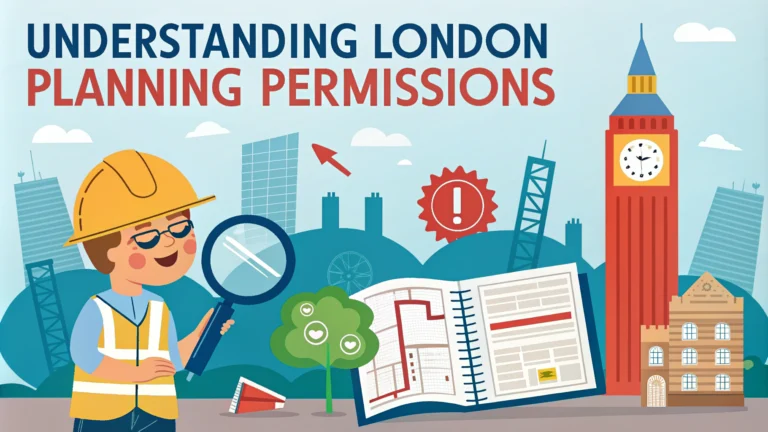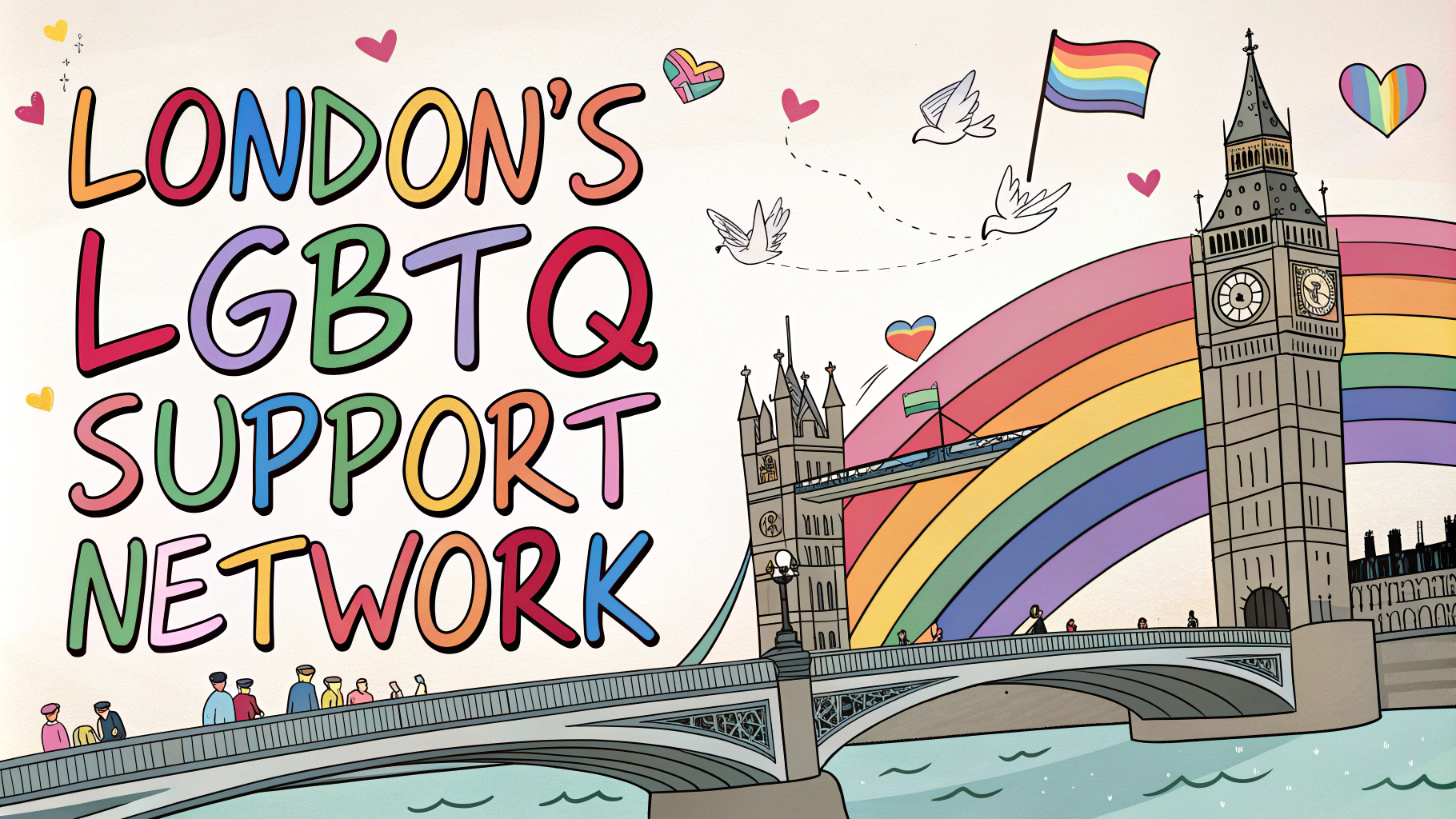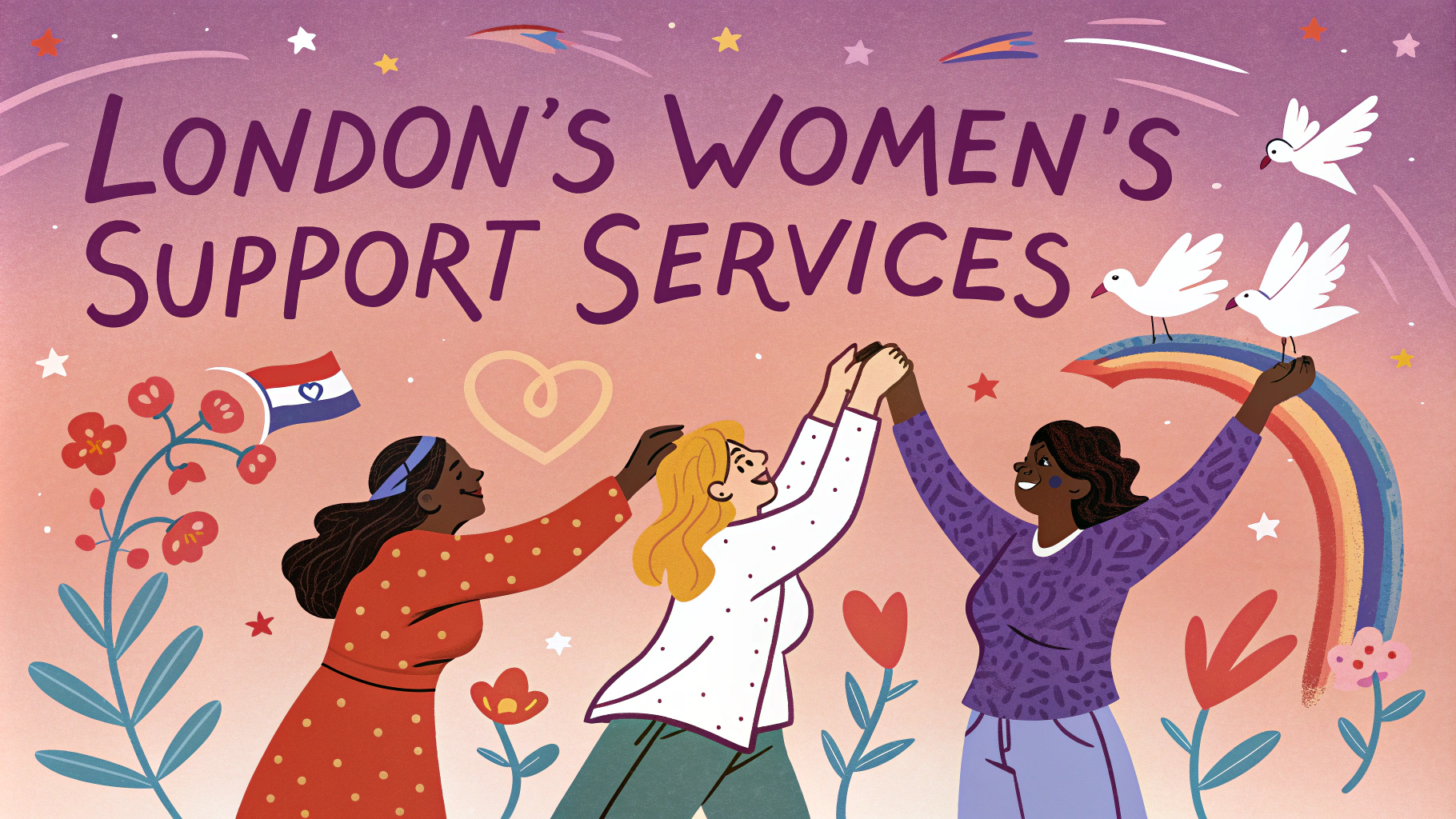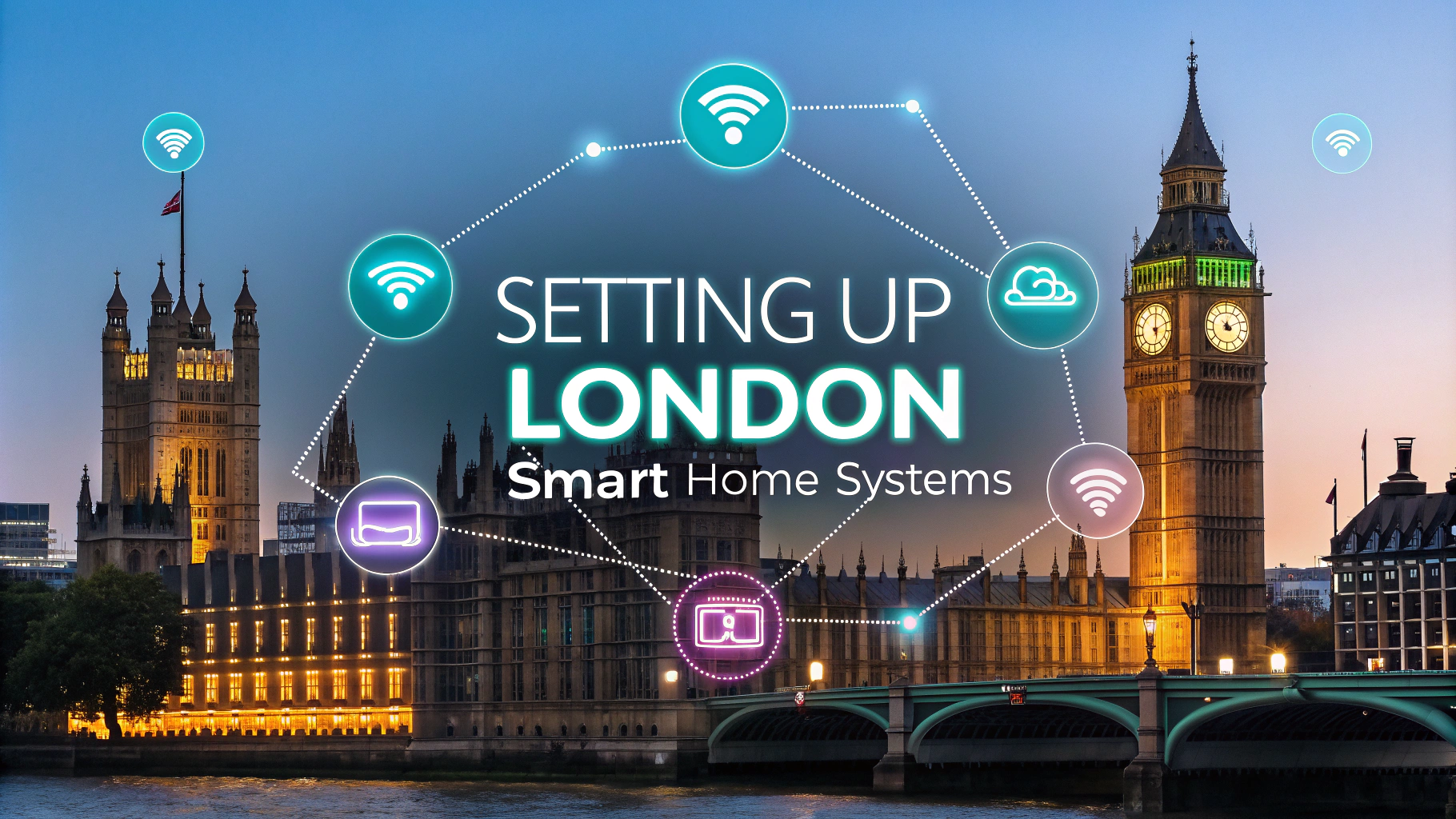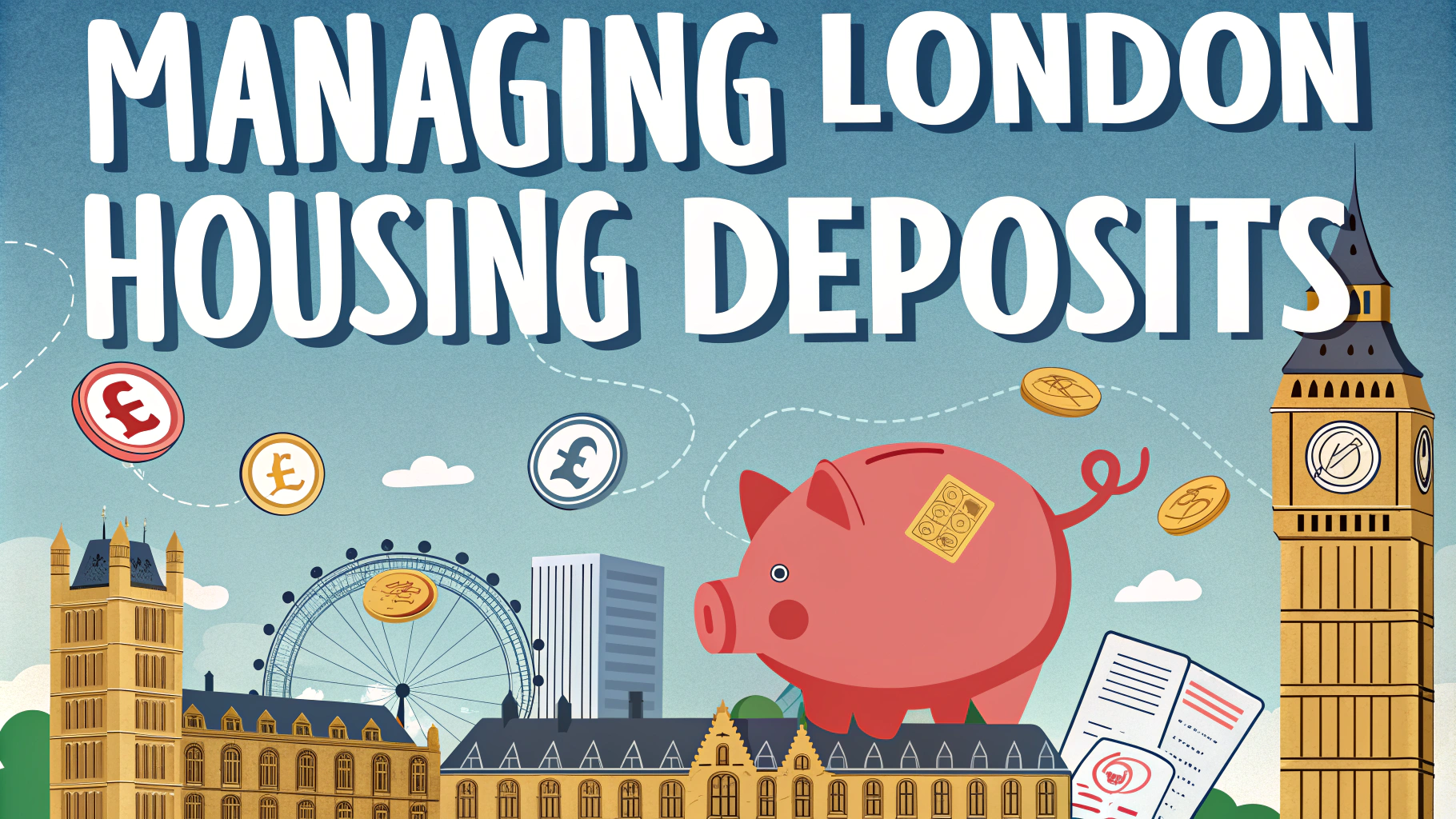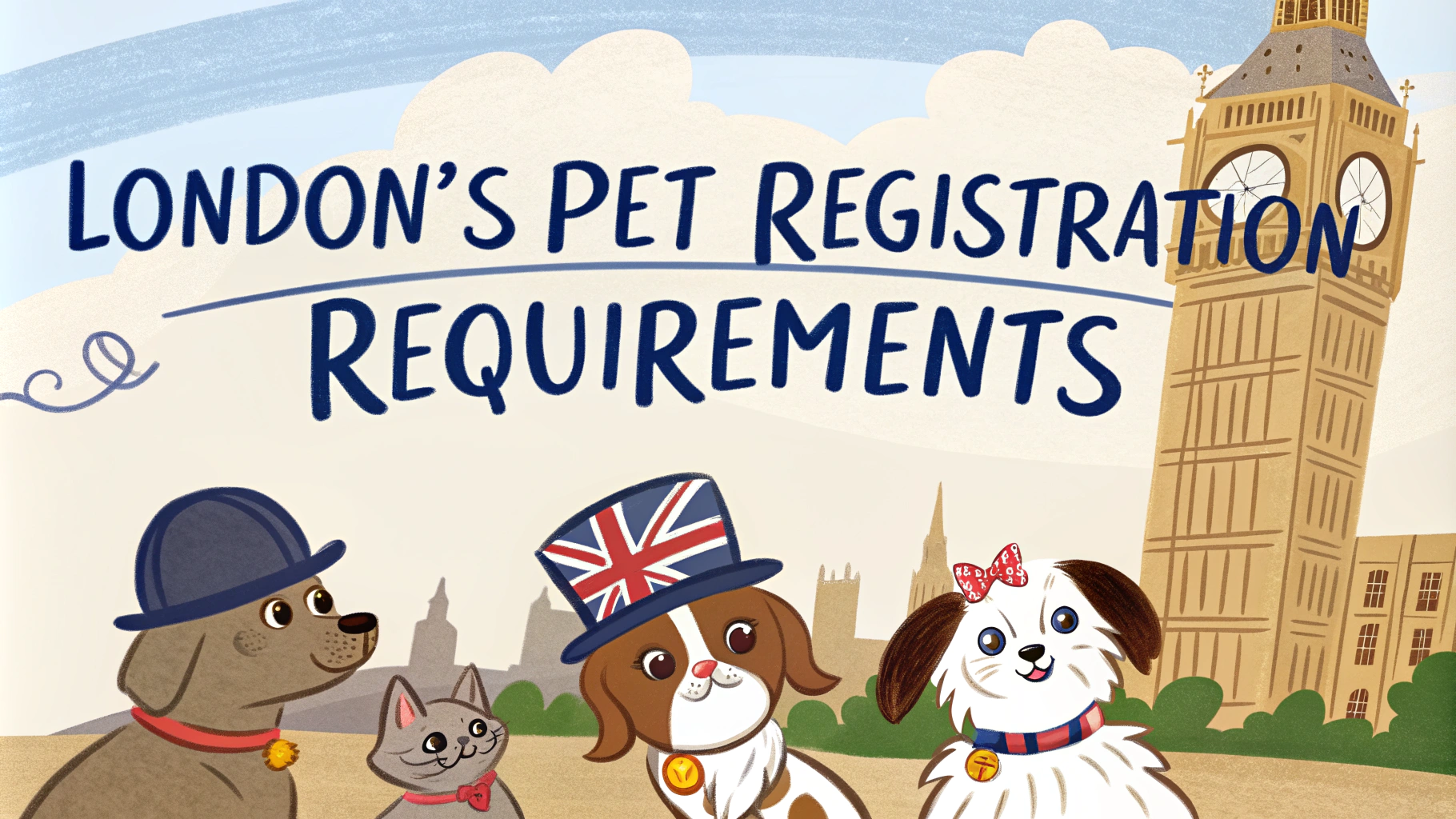Planning permissions in London can be complex, but understanding the requirements helps ensure your property changes comply with local regulations.
The rules vary between London boroughs, with each having specific requirements for different types of building work and renovations.
This guide breaks down the key aspects of London planning permissions, common application types, and how to navigate the process successfully.
Types of Planning Permission in London
- Full Planning Permission – Required for major works like extensions and new buildings
- Householder Planning Permission – For alterations to houses like extensions
- Outline Planning Permission – Initial approval for development concept
- Permitted Development Rights – Allows certain works without formal permission
When You Need Planning Permission
Planning permission is typically needed for:
- Building new structures
- Major alterations to existing buildings
- Change of property use
- Extensions beyond permitted development limits
- Work on listed buildings
- Properties in conservation areas
Application Process
- Check requirements with your local planning authority
- Prepare detailed plans and drawings
- Submit application through the Planning Portal
- Pay relevant fees
- Wait for consultation period (usually 8 weeks)
- Receive decision
Costs and Timeframes
| Application Type | Typical Cost | Processing Time |
|---|---|---|
| Householder | £206 | 8 weeks |
| Full Planning | £462 | 8-13 weeks |
| Listed Building | £0 | 8 weeks |
Common Reasons for Rejection
- Impact on neighboring properties
- Design inconsistent with local character
- Incomplete or incorrect documentation
- Environmental concerns
- Parking and traffic issues
Tips for Success
- Consult with neighbors before applying
- Use a qualified architect or planning consultant
- Research similar approved applications in your area
- Submit clear, detailed plans
- Respond promptly to any queries from planning officers
Useful Resources
Contact your local planning authority through these channels:
- Planning Portal: www.planningportal.co.uk
- Greater London Authority Planning: www.london.gov.uk/planning
- Royal Institute of British Architects: www.architecture.com
Next Steps for Your Project
Begin by checking your property’s planning history and consulting your local authority’s planning department for initial guidance.
Consider hiring a professional architect or planning consultant for complex applications.
Document everything thoroughly and maintain open communication with planning officers throughout the process.
Local Borough Specific Requirements
Different London boroughs may have additional requirements and restrictions:
- Conservation area guidelines
- Local development frameworks
- Building height restrictions
- Basement development policies
- Tree preservation orders
Environmental Considerations
- Energy efficiency requirements
- Sustainable materials usage
- Flood risk assessments
- Wildlife protection measures
- Green space preservation
Additional Documentation
Your application may require:
- Design and Access Statement
- Heritage Statement (for listed buildings)
- Tree Survey
- Ecological Assessment
- Transport Assessment
Appeals Process
- Review rejection reasons carefully
- Consider modifications to address concerns
- Submit appeal within 6 months
- Provide additional supporting evidence
- Wait for appeal decision (typically 14-20 weeks)
Securing Your Planning Success
Successful planning applications require thorough preparation, attention to detail, and understanding of local requirements. Start early, seek professional advice when needed, and maintain clear communication with all parties involved.
Remember that planning permissions are valid for three years from the date of approval. Begin your project within this timeframe to avoid reapplication.
Stay informed about local planning policies and regulations to ensure your property development complies with current standards and contributes positively to your neighborhood.
FAQs
- What types of planning permission do I need in London?
You typically need planning permission for new buildings, major alterations, extensions, change of use, or works on listed buildings. Some smaller projects may fall under Permitted Development rights. - How long does it take to get planning permission in London?
Standard planning applications typically take 8-13 weeks for a decision. Major developments can take longer, while smaller applications under Permitted Development can be faster. - Which London boroughs have the highest planning permission approval rates?
Richmond upon Thames, Wandsworth, and Kingston upon Thames historically have higher approval rates, while Tower Hamlets and Newham tend to have lower approval rates. - Do I need planning permission for a loft conversion in London?
Not always. If your conversion falls within Permitted Development rights and doesn’t alter the roof space by more than 50 cubic meters (houses) or 40 cubic meters (flats), you may not need permission. - What are the costs associated with London planning applications?
For householder applications, fees are typically £206. Major developments cost £462 per dwelling, while change of use applications usually cost £462. Additional fees may apply for listed buildings. - How do Conservation Areas affect planning permission in London?
Properties in Conservation Areas have stricter controls. Many Permitted Development rights don’t apply, and you’ll likely need permission for works that would normally be permitted elsewhere. - Can I appeal if my London planning permission is refused?
Yes, you have six months to appeal to the Planning Inspectorate. The appeal process typically takes 14-52 weeks, depending on the complexity of the case. - Do I need planning permission to run a business from my London home?
If your business significantly changes the primary use of your home, affects parking, creates noise, or involves external alterations, you’ll likely need planning permission. - What’s the difference between outline and full planning permission in London?
Outline permission establishes development principles, while full permission includes all details like design, materials, and access. You’ll need full permission before starting construction. - How long does planning permission last in London?
Standard planning permission lasts three years from the date of approval. You must start the development within this period, or you’ll need to reapply.
